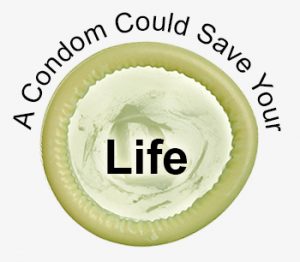Why “Safe Sex” Doesn’t Exist, but “Safer Sex” Does

Astonishingly, most people, especially young ones do not use protection when engaging in sexual intercourse. There has been a rise in the number of people with STIs where some are aware while others don’t. This is because some STIs are hard to detect during the first stages as they carry less or no symptoms.
Safe sex doesn’t exist because there’s no guarantee that you can protect yourself 100% from STIs and HIV. But you can practice safer sex which means doing activities that can reduce the chances of transmitting the infections. By not practising safe sex, you are prone to catching various infections such as:
• Chlamydia which is common among young people and can go unnoticed for a long time. But when symptoms occur, you may experience pain during sex, abdominal pain, and yellow/green discharge from your vagina or penis. Lack of treatment can lead to infertility.
• HPV is another common STI and its common symptoms are having warts on the genitals, throat and mouth. If left untreated, it increases your chances of getting cancer from cervical to vulvar and rectal to penile.
• Gonorrhoea is again another common STD with no sign but if they appear you may notice frequent urination, sore throat, genital itching, pain during sex, and genital discharge.
• Syphilis has common symptoms such as weight and hair loss, fever, headache, rash, and joint pain.
• Last but not least, HIV, a deadly virus is another common STI. Many people have succumbed to it since it has no cure yet. However, to protect yourself, you can Buy PrEP, or ensure you practice safer sex.
You can transmit STI through oral, vaginal and anal sex by exchanging body fluids such as blood, vaginal discharge, and pre and post ejaculation cum. This is why you need to practice safer sex for a 99% chance of protection.

How Young People Should Practice Safer Sex
Young people tend to indulge in sexual activities. Of course, sexual intercourse provides a pleasure that people can’t refrain from. Even so, it is always advisable to practice safer sex. Safer sex doesn’t mean using a condom or doing the withdrawal method. These two can only protect you from getting pregnant, but again nothing is 100% accurate.
It is not uncommon for young individuals to have sex at a party, in the club, during a road trip, or at an event. They will abuse drugs such as ecstasy, marijuana and drink alcohol. By doing so, they are always at the risk of having unprotected sex.
Mixing alcohol and sex can be due to nervousness where a teen is anxious about their sexual performance, or they want to trend like others by having drunken hookups. However, there are better ways you can protect yourself by having safer sex and ensure to pre-plan on how to go about it.
How to Practice Safer Sex
There are several ways you can practice safer sex. And if you think that having sex with one partner doesn’t require protection, you are mistaken. Here is how you can pre-plan for protected sex and have safer sex.
• To pre-plan, you can start with a clinical checkup for an STI screening. You could also get the STI screening if you have had exposure to the infections or recently changed partners. It is also advisable not to have sex until your results are negative. It can help you prevent spreading sexually transmitted diseases.
• For women, you could research birth control options and use the one that suits you. From daily and monthly injections to intrauterine devices and many others. However, they can only prevent pregnancy, so you should consider other STI protection methods.
• Another way to pre-plan is by knowing your HIV status; it can prevent getting or transmitting it to other people. If you are at risk, you should buy prep which protects you from getting infected.
By practising safer sex, it can prevent you from getting and transmitting sexually transmitted infections. Here is how you can have safer sex.
• The best way to prevent STI for young people is abstaining from sex. However, this is not a guarantee that you will not contract because you can also get it if you come into contact with sexual fluids containing pathogens.
• Ensure that you use condoms correctly by following instructions on the manual. This can prevent tearing of the condom allowing sexual fluid to pass through. Additionally, use a new packet for each sexual activity.
• Avoid having multiple sexual partners to reduce the chances of getting it from an unknown partner.
Minimum protection is better than no protection. It would be best to practice safer sex to avoid getting and transmitting sexually transmitted diseases including HIV/AIDs.

 Twitter
Twitter Tumblr
Tumblr Newsletter
Newsletter